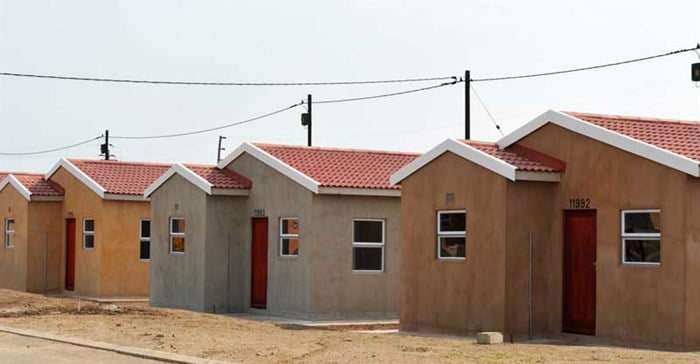News
Behind the Headlines: Why Lesufi and Motara Are Not at Odds on Informal Settlements

When it comes to housing, politics in Gauteng can get heated quickly. So when the Democratic Alliance (DA) accused Premier Panyaza Lesufi and Human Settlements MEC Tasneem Motara of contradicting each other on how to handle informal settlements, it lit a fuse across social media and political circles.
The DA claimed residents were left “confused and disappointed” by what it described as mixed signals from the province’s top leaders. But as the dust settles, one thing is clear: there’s no public fallout, and the strategy appears far more coordinated than the headlines suggest.
A “Split” That Wasn’t
The DA’s criticism focused on the contrast between Lesufi’s tough stance on illegal land invasions and Motara’s emphasis on upgrading informal settlements. But the Gauteng Department of Human Settlements quickly shut the rumour mill down, calling the claims “misleading and opportunistic.”
In their view, Lesufi and Motara are aligned, just approaching the same problem from two different ends. Lesufi’s warnings are meant to protect land set aside for future development, while Motara’s focus is on improving conditions for those already living in informal communities.
“They’re two sides of the same coin,” the department said.
Land Invasions Undermine Development
Illegal land grabs have long been a thorn in the side of Gauteng’s housing agenda. When land earmarked for clinics, schools, or housing projects is unlawfully occupied, it throws planned development into chaos. It drives up costs, invites legal battles, and pushes timelines back by years.
That’s why both Lesufi and Motara back firm action. Motara has been clear in her stance: “I fully support the eviction of illegal occupations, whether of land or property.”
This might sound harsh, but the goal, they argue, is not to criminalise desperation. It’s to ensure sustainable, serviced living conditions that meet basic standards of safety and dignity, not overcrowded plots with no water, no toilets, and no long-term future.
Progress Amidst the Pressure
Despite facing tough budget constraints and increasing migration into cities, Gauteng’s housing department says it is delivering. In 2025 alone, nine informal settlements have been upgraded. These improvements have brought water, sanitation, and infrastructure to thousands of people.
This isn’t just about bricks and mortar. It’s about stabilising communities, restoring dignity, and proving that government can get things done even under pressure.
The department called these upgrades “tangible progress, not failure,” and said the DA’s portrayal ignores the work being done behind the scenes and on the ground.
Not Out of Touch, But Under Strain
Urban housing in South Africa is a messy issue. Rapid migration, budget cuts, and land shortages make it near impossible to keep up with growing demand. In that context, it’s easy for political accusations to grab the spotlight.
But the department insists that the approach to informal settlements is cohesive, not confused. Eviction orders, land protection, formalisation and infrastructure upgrades are all part of the same plan to make housing safer, smarter, and more sustainable in the long run.
For communities waiting on homes, that might sound like more talk. But for the thousands already receiving upgrades this year, it’s proof that change is still possible.
Also read: Softer US Jobs Data Brings Good News for South Africa’s Interest Rates and Rand
Follow Joburg ETC on Facebook, Twitter, TikT
For more News in Johannesburg, visit joburgetc.com
Source: The Citizen
Featured Image: Bizcommunity















